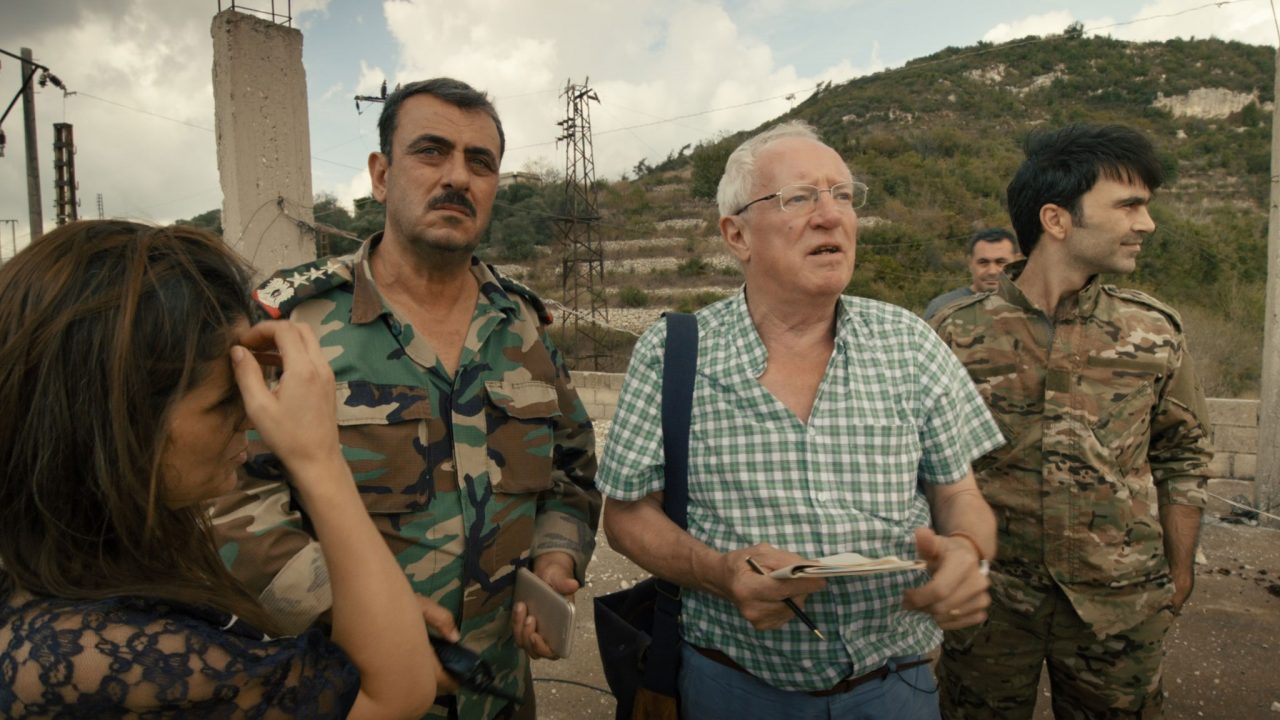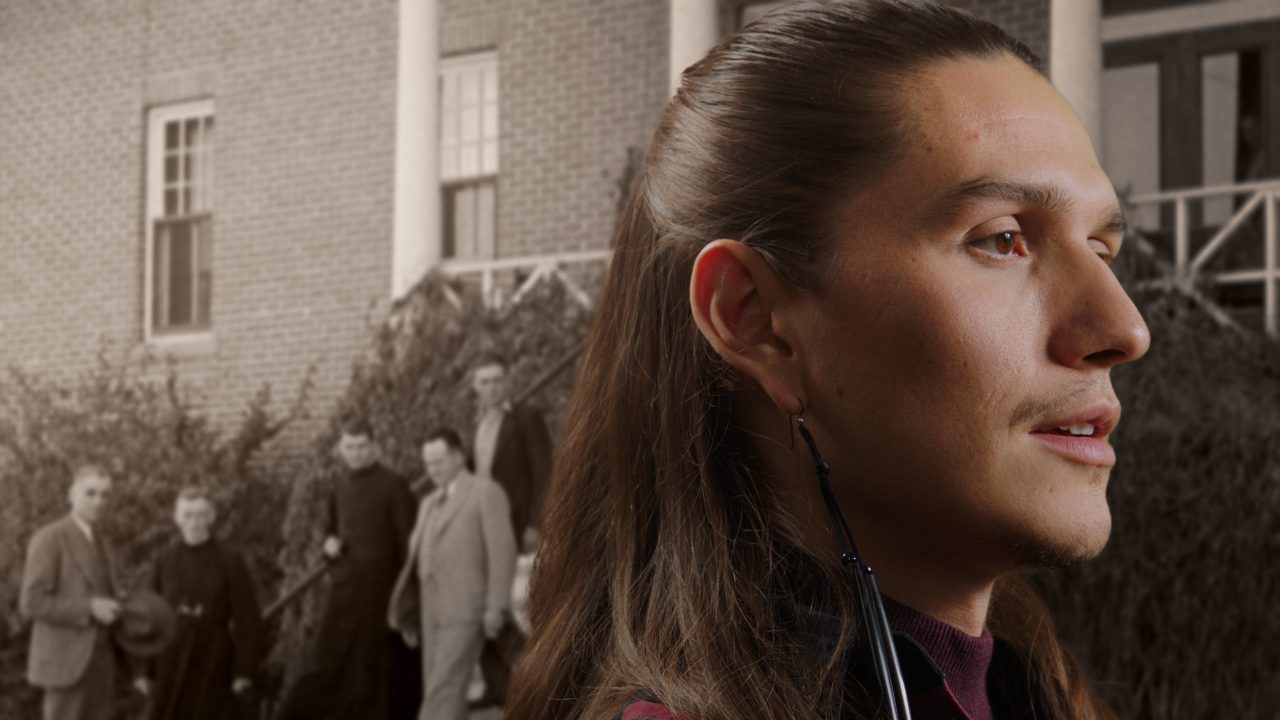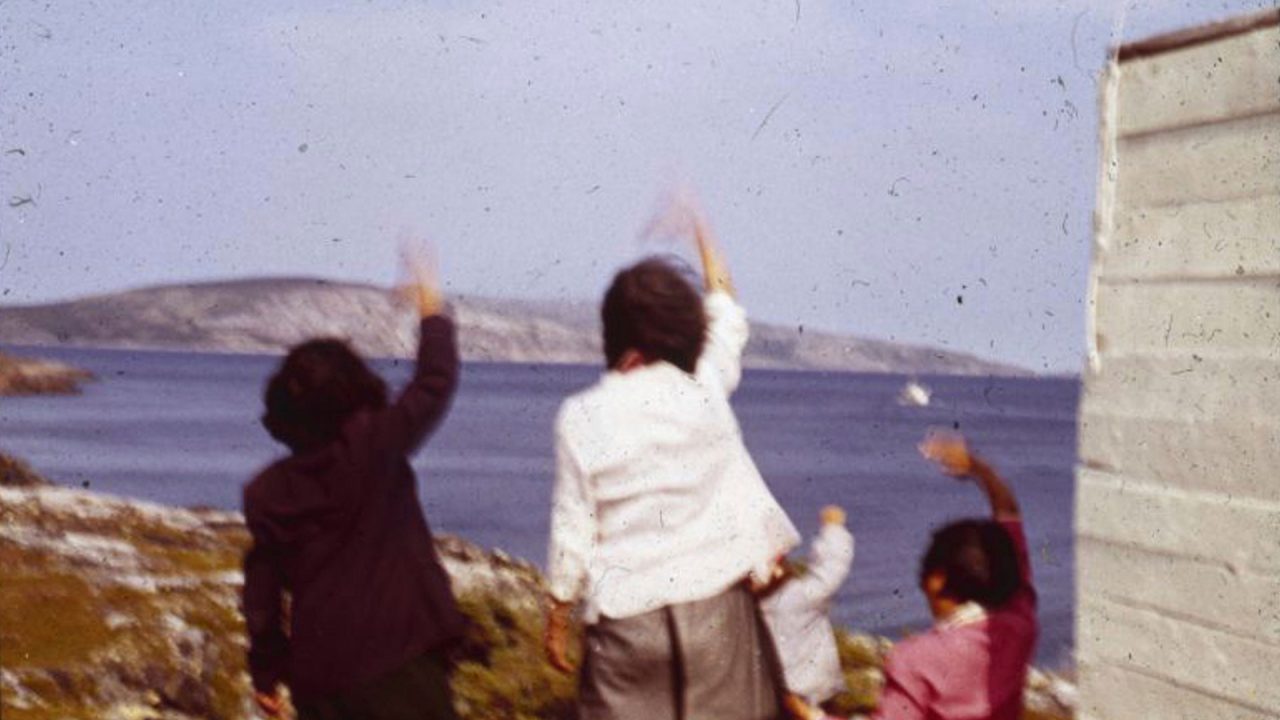
Mini-Lesson for This Is Not a Movie
Mini-Lesson for This Is Not a Movie
Mini-Lesson for This Is Not a Movie
School Subjects:
- Journalism
- Ethical Values
- Issues in Society Today
- Population and Settlement
Recommended Ages: 15-17
This is Not a Movie, Yung Chang, provided by the National Film Board of Canada
Warnings: Graphic images and descriptions of violent conflict
Keywords/Topics: Journalism, Middle East, Ethics, War Zones, Communication, Technology
Guiding Question: What is a journalist’s ethical responsibility when reporting in a war zone?
Educational Synopsis: The Middle East continues to be a violent region of the world with significant political, religious and economic challenges. Robert Fisk has reported on this region for the last 40 years and has been accused of being pro-Israel, pro-Arab, pro-regime and pro-rebel. Thanks to Fisk’s unique position as a foreign correspondent, his eloquence and his ethical belief in doing his journalistic best to tell the truth as seen from his eyes, we have the opportunity to view these events not as movie scripts, but as horrors happening to real people. This is a wonderful documentary to help students explore the role of journalism and ethics, as well as the impacts of colonialism and the ongoing struggles in the Middle East.
Activity 1. Discussion Roundtable
The 4 Cs (Visible Thinking routine – modified for film)
One of the greatest challenges for journalists today is the accusation of “fake news” being applied to trustworthy and ethical news reporting. Robert Fisk writes opinion pieces (op-eds) in addition to doing journalistic reporting about situations in the Middle East. In This Is Not a Movie, you are asked to explore whether Fisk is reporting truthfully or whether he is a biased observer and reporter.
Clip #1 (1 min 21 sec)
Clip #2 (1 min 18 sec)
Using the 4 Cs strategy, complete a silent carousel. After viewing this short clip, post each of the 4 Cs on chart paper with a question beneath them (see below). Groups can silently write their answers and thoughts on each chart, moving to a new chart after a determined time. Once all four charts have been written on, groups move back to their starting point to read all the points, then summarize their chart verbally with the larger group.
- Connections: What connections do you draw between Fisk’s observations and your own life or your other learning?
- Challenge: What ideas, positions or assumptions do you want to challenge or argue with in the clip?
- Concepts: What key concepts or ideas do you think are important and worth holding on to from the text?
- Changes: What changes in attitudes, thinking or action are suggested by the clip, either for you or others?
Go Deeper
Clip #3 (1 min 56 sec)
Where have the Syrians gone? Fisk mentions a “year zero” for the Syrian people of Homs. Using news reports and UN Refugee information from the website www.unhcr.org, try to determine where the citizens of Homs are today. What do you believe the future holds for these former citizens of Syria?
Activity 2. Socratic Circle
Clip #4 (1 min 48 sec)
Fisk discusses his work as a journalist covering Northern Ireland during the time when the Irish Republican Army was in rebellion against the British government for control of Northern Ireland. Fisk discusses whether a reporter should be emotional and what he learned about bias and reporting truth to power. In a Socratic Circle, have students discuss Fisk’s observations:
- Should reporters be “on the side of power?”
- Should reporters be emotionless when reporting?
- Should a reporter put themself in danger to report?
- Can a story about a conflict be bias free to be effective in telling the story?
- What limits should a reporter consider in trying to share the story of a conflict?
Go Deeper
Compare two stories about the Trans-Mountain Pipeline. Explore the stories for bias, factual reporting (fact check and look for corroboration) and emotional impact. What do you recognize is done well in each story? What are the weaknesses? What concerns do you have for readers of these stories? What is the reader’s responsibility?
- “Liberal government approves $9.3B Trans Mountain expansion project, but critics say it’s too little too late.” National Post, 18 Jun. 2019.
- “How We Got Here: A Tyee Pipeline Reader.” The Tyee, 30 Aug. 2018.
Activity 3. Compare and Contrast
Robert Fisk writes both news dispatches (short articles covering the facts or events in Middle East conflict zones) and an editorial column (opinion pieces about events in the Middle East). One of the concerns about modern media news is the abbreviated nature of reports, which do not allow for detailed interviews and background information that help readers/viewers to fully understand the issues being reported. Compare a Fisk dispatch with an editorial. Is there evidence of bias in the dispatch, or is it an impartial piece of writing? What can you learn about Fisk’s beliefs from the editorial?
- “Everything you were told about the Syrian war was wrong – until now.” Independent, 7 Nov. 2019.
- “Hotel journalism gives American troops a free hand as the press shelters indoors.” Independent, 17 Jan. 2005.
Go Deeper
Clip #5 (1 min 53 sec)
Fisk believes that the 9-11 attack on the Twin Towers in New York had its roots in American and Israeli involvement in how Palestinian, Arab and Muslim peoples in the Middle East were colonized. Is this colonization continuing? What evidence in news media can you find to corroborate your opinion? Why would Israel and Western countries be interested in controlling populations in this region? Who benefits from instability in the Middle East? What happens when Middle Eastern organizations try to bring attention to the challenges facing their peoples? What does this lead you to conclude? Can you take the alternative position?
Cecile McVittie is currently a secondary-level Vice Principal in Kamloops, BC. She was a teacher librarian for 22 years and has taught K–12 for over 30 years in private, public, urban and rural schools. She is also currently an online instructor for Queens University. Her passions include global education, trans-literacy, diversity, inclusion and social justice.
Pour lire cet article en français, cliquez ici.
Discover more Mini-Lessons | Watch educational films on NFB Education | Watch educational playlists on NFB Education | Follow NFB Education on Facebook | Follow NFB Education on Pinterest | Subscribe to the NFB Education Newsletter



